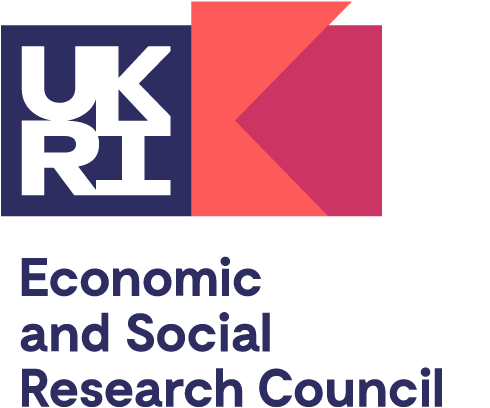Project Details
Description
Background
Since 2014, we have supported 555 homeless young people in Birmingham into housing, education and employment, using psychological techniques developed for elite athletes. Our collaborative programme, My Strengths Training for Life™ (MST4Life™), was co-developed by researchers from the University of Birmingham with St Basils, a West Midlands Housing Service for young people 16-24 years who are homeless. Given the number of people in England has risen by 165% since 2011, it is crucial to share the learning from MST4Life™ nationwide.
Aim
We aim to translate research evidence from the MST4Life™ programme into a shareable toolkit for implementation in Housing Services across the UK. Our project capitalises on toolkits as a simple and flexible way to promote the translation of evidence-based interventions into real-world settings. But, for these to be maximally effective, stakeholder engagement is critical and barriers to implementation need to be directly addressed.
Our team therefore includes specialist stakeholders: St Basils, Youth Voice, a national advocacy group for homeless young people, and Homeless Link, a national-level charity that campaigns for homeless policy. We will use principles of co-production to co-develop the toolkit and sector-wide implementation strategies.
Objectives
1. We will conduct two separate one-day workshops with: (a) 6-8 young people from Youth Voice; and (b) 10-15 staff from St Basils (e.g., support workers, housing managers, employability coaches) with experience in co-developing and/or co-delivering MST4Life™. The workshops will inform the initial content, structure, and format of the toolkit to include
• An instructional guide and practical resource for professionals to support the development of homeless young people’s mental skills
• A self-study workbook for homeless young people to record, monitor, and deepen their engagement with mental skills.
2. A one-day symposium for 100 housing service staff and policy makers co-run with our specialist stakeholders to introduce and develop implementation strategies for the toolkit into services and policy agendas.
• Attendees will receive presentations about the toolkit and engage in “taster” activities co-run by our project partners.
• We will use the nominal group technique combined with TurningPoint Interactive polling software to engage stakeholders in generating lists of barriers and aids. This innovative approach is designed to promote a creative but non-hierarchical discussion forum that will draw on the diverse range of our symposium attendees’ experience and expertise. It will enable use to better understand and get consensus on what are the key issues to address in the implementation of the toolkit (e.g., barriers, enablers).
Since 2014, we have supported 555 homeless young people in Birmingham into housing, education and employment, using psychological techniques developed for elite athletes. Our collaborative programme, My Strengths Training for Life™ (MST4Life™), was co-developed by researchers from the University of Birmingham with St Basils, a West Midlands Housing Service for young people 16-24 years who are homeless. Given the number of people in England has risen by 165% since 2011, it is crucial to share the learning from MST4Life™ nationwide.
Aim
We aim to translate research evidence from the MST4Life™ programme into a shareable toolkit for implementation in Housing Services across the UK. Our project capitalises on toolkits as a simple and flexible way to promote the translation of evidence-based interventions into real-world settings. But, for these to be maximally effective, stakeholder engagement is critical and barriers to implementation need to be directly addressed.
Our team therefore includes specialist stakeholders: St Basils, Youth Voice, a national advocacy group for homeless young people, and Homeless Link, a national-level charity that campaigns for homeless policy. We will use principles of co-production to co-develop the toolkit and sector-wide implementation strategies.
Objectives
1. We will conduct two separate one-day workshops with: (a) 6-8 young people from Youth Voice; and (b) 10-15 staff from St Basils (e.g., support workers, housing managers, employability coaches) with experience in co-developing and/or co-delivering MST4Life™. The workshops will inform the initial content, structure, and format of the toolkit to include
• An instructional guide and practical resource for professionals to support the development of homeless young people’s mental skills
• A self-study workbook for homeless young people to record, monitor, and deepen their engagement with mental skills.
2. A one-day symposium for 100 housing service staff and policy makers co-run with our specialist stakeholders to introduce and develop implementation strategies for the toolkit into services and policy agendas.
• Attendees will receive presentations about the toolkit and engage in “taster” activities co-run by our project partners.
• We will use the nominal group technique combined with TurningPoint Interactive polling software to engage stakeholders in generating lists of barriers and aids. This innovative approach is designed to promote a creative but non-hierarchical discussion forum that will draw on the diverse range of our symposium attendees’ experience and expertise. It will enable use to better understand and get consensus on what are the key issues to address in the implementation of the toolkit (e.g., barriers, enablers).
| Short title | ESRC IAA Closing the knowledge to practice gap: Advancing mental skills training practice in youth homeless services through co-created knowledge translation |
|---|---|
| Status | Finished |
| Effective start/end date | 1/11/19 → 31/01/23 |
| Links | https://youtu.be/Gr2aU0XqLBQ https://www.sprintproject.org/ https://www.homeless.org.uk/meeting-young-peoples-psychological-needs-during-COVID19 |
Funding
- Economic & Social Research Council

Key words
- Homeless
- Co-design
- Knowledge translation
- Mental skills
Fingerprint
Explore the research topics touched on by this project. These labels are generated based on the underlying awards/grants. Together they form a unique fingerprint.